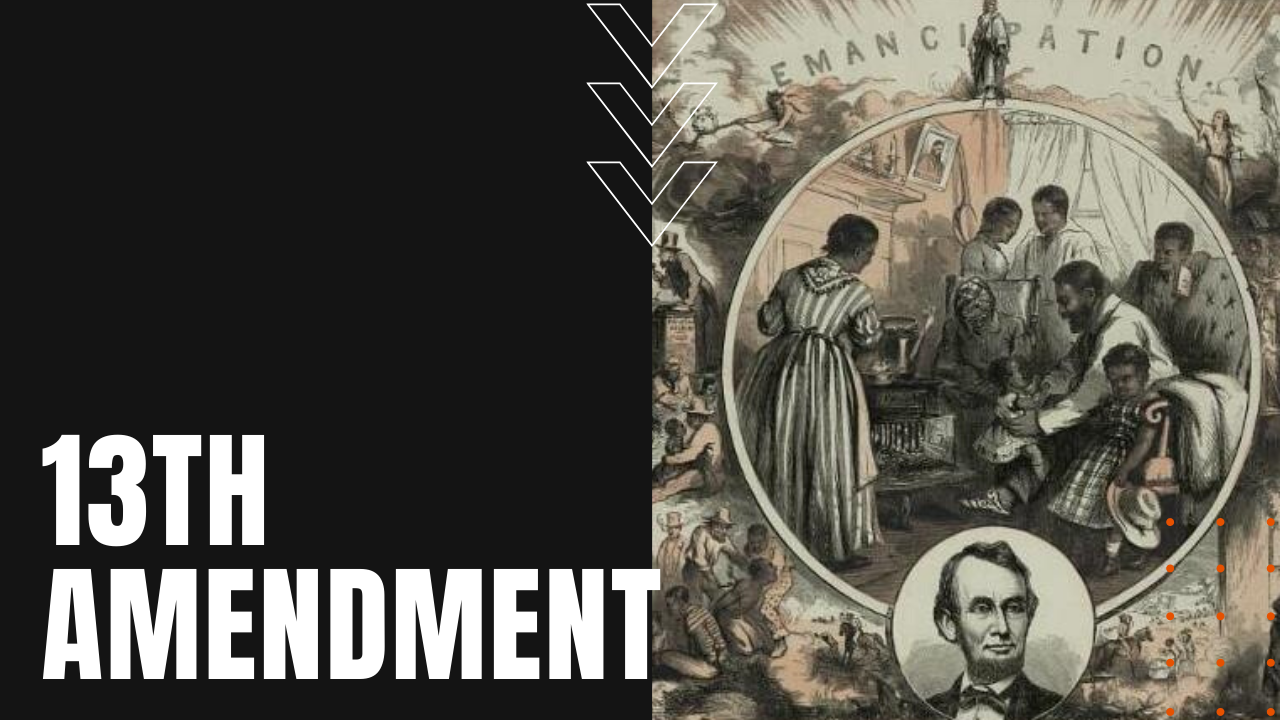What is the 13th Amendment?

Emancipation Proclamation
243 years after the first slaves arrived into North America, in 1862, during the height of the American Civil War, President Abraham Lincoln issued his Emancipation Proclamation, which gave Southern slaveholding states 100 days to rejoin the Union, at the same time ending the institution of slavery.
When Lincoln and the Union failed to receive a response from the Confederate South, Lincoln’s Emancipation Proclamation turned into law on New Year’s Day, 1863, declaring that all slaves are “thenceforward, and forever free.”
At the same time, Lincoln understood that his decree applied only to territories currently part of the Union states, but his proclamation’s symbolic stand shifted the North’s Civil War objectives from not only preserving the Union as a solitary nation, but for the abolition of slavery from American soil.
What is the 13th Amendment?
Realizing that Lincoln’s Emancipation Proclamation would have no constitutional teeth after the end of the Civil War, Lincoln and the U.S. Congress began work on a constitutional amendment, which would formally abolish slavery under federal law. In response, the U.S. Senate passed a proposed anti-slavery amendment in April of 1864, however, the process faltered in the House of Representatives, when Democrats resisted its passage under the weight of an election year.
After Lincoln was soundly re-elected to a second term as president, in December of 1864, Lincoln’s hands-on approach to the legislative process combined with an emboldened Republican party to push the 13th Amendment through the House on January 31st, 1865, after the amendment passed with the required two-thirds majority vote of 119 yahs to 56 nays.
Lincoln would not see the final ratification of the 13th Amendment, which passed the Senate on December 6th, when on April 14th, 1865, actor and assassin John Wilkes Booth murdered Lincoln, less than a week after the end of the Civil War.
13th Amendment In Action
Together with the 14th and 15th Amendments passed during the Reconstruction era, the 13th Amendment sought to bring about equality for African Americans, yet pushback from Southern states saw the rise of Black Codes and Jim Crow laws, which continued to segregate African Americans until the civil rights movement combined with voting and anti-segregation laws of the mid-1960s, making the 13th Amendment a vast step forward in America’s slow embrace of racial equality.
